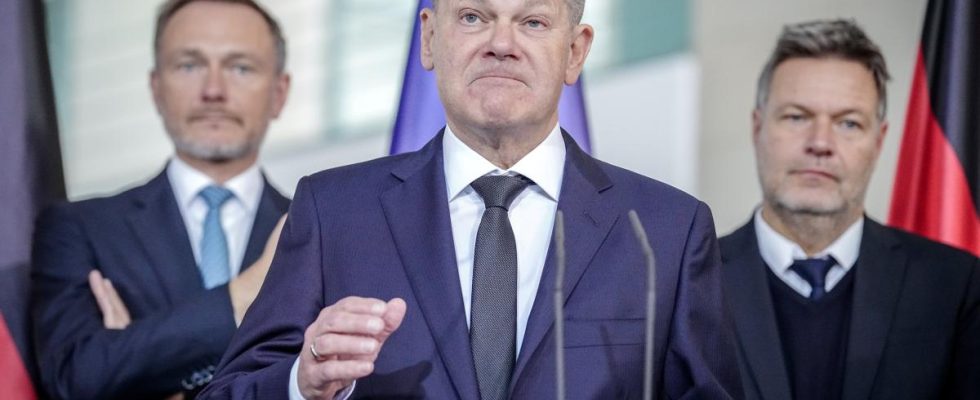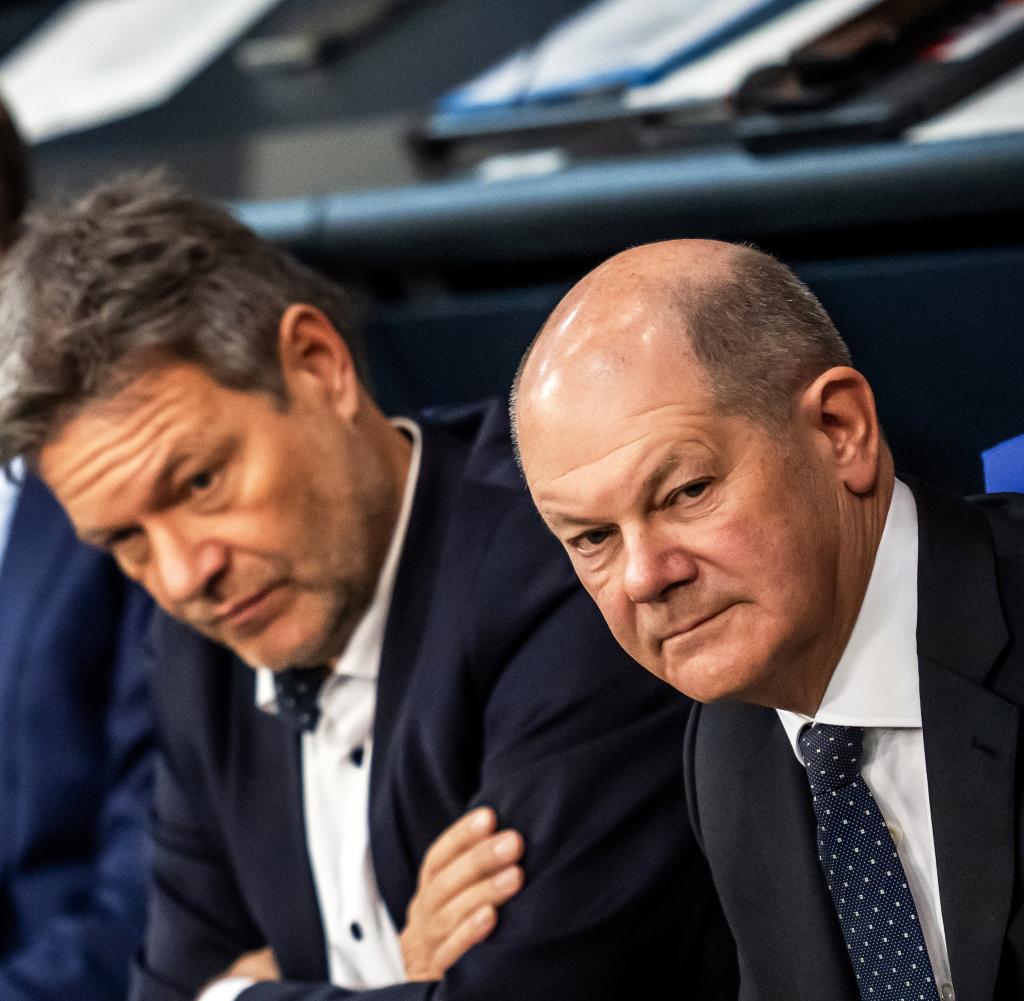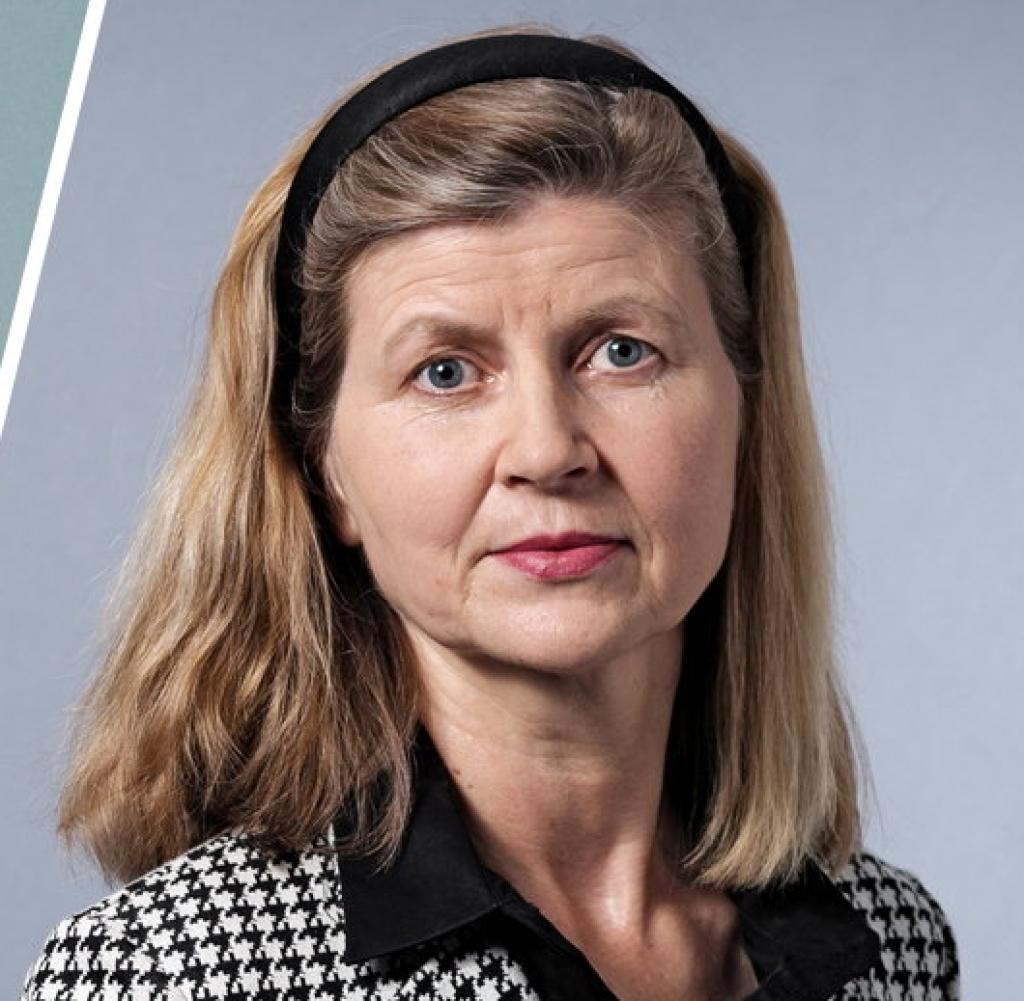“Work is worth it,” emphasizes the SPD in the heated dispute over citizens’ money
Habeck cancels trip to climate conference due to budget crisis
Robert Habeck has canceled a planned trip to the World Climate Conference in Dubai due to the budget crisis. A spokeswoman said Habeck’s presence in Berlin was necessary to further advance talks on the 2024 budget following the Federal Constitutional Court’s ruling.
Despite the 17 billion hole in the 2024 federal budget, the SPD and the Greens are resisting calling off the planned increase in citizens’ money – as the coalition partner FDP and the Union want. The Social Democrats criticize “conservative attacks on our welfare state” as “shabby”.
KAlmost three weeks after the Federal Constitutional Court’s budget ruling, the traffic light coalition is looking for ways to plug the resulting hole in the 2024 federal budget, estimated by Finance Minister Christian Lindner (FDP) at 17 billion euros. While the FDP and the Union are calling for cuts in the social budget, politicians from the SPD and the Greens are warning against such savings, especially in citizens’ money. At the same time, the federal government released half a billion euros in advance subsidies for the construction of a battery factory in the Schleswig-Holstein district town of Heide.
The SPD and the Greens tried hard on Sunday not to let the dispute over budget cuts get out of hand, at least verbally. Means to an end: Instead of criticizing the coalition partner FDP, which is pushing for social cuts, the SPD and the Greens took on the Union, which also wants to make cuts in this area. The parliamentary director of the SPD in the Bundestag, Katja Mast, called it “shabby” to question the welfare state promise “through populist debates”.
She is shocked by “how the Union talks about people who are dependent on support”. “The Federal Constitutional Court has made it clear that a humane minimum subsistence level is needed in Germany. This is citizen’s money. Contrary to the conservative attacks on our welfare state, one thing is certain: work is worth it,” Mast told WELT. Citizens’ money is not a “blank check that falls from the sky”.
The deputy leader of the Green Party, Andreas Audretsch, pointed out that “food inflation has been over 20 percent in some cases in recent months”. “Citizens’ money guarantees the subsistence level, especially in such difficult situations. This is what the Federal Constitutional Court has stated in several judgments,” said Audretsch. Single adults should receive 563 euros per month from January, 61 euros more than before. Adults living with partners should receive 506 euros instead of the previous 451 euros.
FDP General Secretary Bijan Djir-Sarai had previously suggested that the increase in citizens’ benefit decided by the Federal Cabinet and unanimously confirmed by the Federal Council should be withdrawn due to the budget situation. “It is completely clear that the welfare state in Germany costs too much money. Every third euro that the federal government spends goes towards social spending. “That’s no longer possible,” said Djir-Sarai in “Bild am Sonntag”.
The labor market policy spokesman for the FDP parliamentary group, Pascal Kober, justified the Liberals’ initiative when asked by WELT: “The increase in citizens’ benefits was based on an assumed, still high inflation of 9.9 percent. The inflation rate is now significantly lower at 3.2 percent. We should therefore examine how the actual inflation development can be better reflected in citizens’ money.”
Which is the “main goal” for the Union
Support for this position came from the ranks of the Union and the AfD. Mathias Middelberg (CDU), deputy leader of the Union parliamentary group in the Bundestag, called for the increase in citizens’ benefits to be “stopped initially” and for this social benefit to be “fundamentally” revised. “The main goal must be to massively increase the incentives to take up employment,” said Middelberg.
CDU General Secretary Carsten Linnemann announced that, if the Union takes over government, able-bodied young adults would have to expect a significantly increased cut in citizens’ benefits if they reject a job or training offer.
The social policy spokesman for the AfD parliamentary group, René Springer, suggested that citizens’ allowance should not be increased by twelve percent as planned, but by 3.4 percent, in line with the minimum wage. “In this way, the wage gap requirement between employees and citizens’ benefit recipients is better maintained,” said Springer. He also advocated that citizens’ money should only be paid out to German citizens. “Foreigners should fundamentally have no right to this,” said the AfD politician.
Bavaria’s Prime Minister Markus Söder also wants to limit the number of recipients of citizens’ benefit. The benefit must be “separated from escape and asylum,” said the CSU boss. There should be no citizen’s allowance payments to newly arriving Ukrainian refugees. “It would not be legal to delete something retroactively. But we have to change course for all new cases,” said Söder. He also spoke out in favor of reversing the citizen’s benefit increase on January 1, 2024. The leaders of the traffic light coalition are expected to decide next week whether the overall budget gap should be filled.
However, Chancellor Olaf Scholz (SPD), Economics Minister Robert Habeck and Finance Minister Lindner have already made a decision. Despite the budget freeze, they promised the Swedish company Northvolt half a billion euros in support to build a battery factory in Heide, Schleswig-Holstein. The Ministry of Economic Affairs announced: An exemption from the budget freeze was granted by the Federal Ministry of Finance due to the urgency of the location decision.





